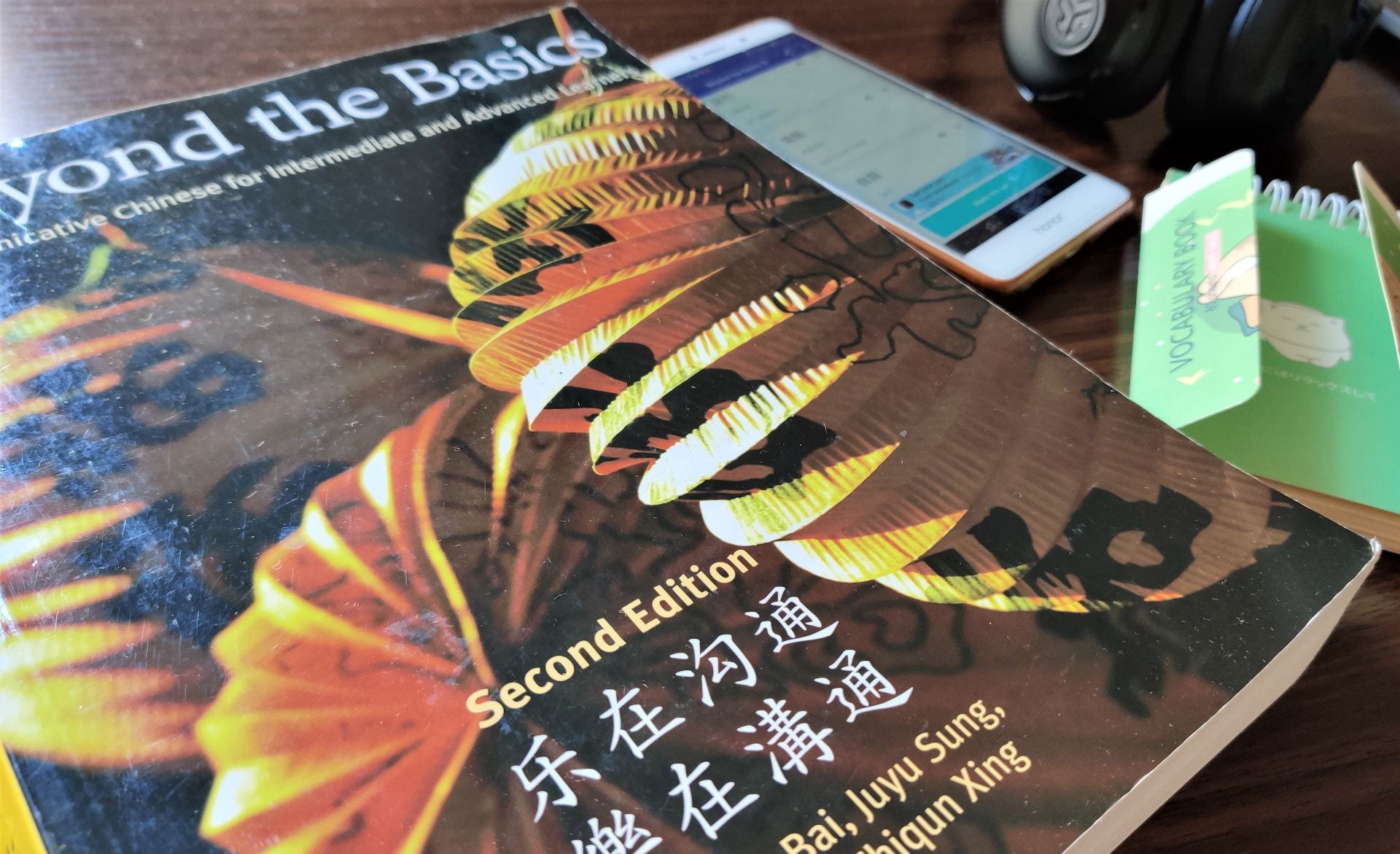Summer 2021 Language Fellow – A Reflection
With two years of one-on-one instruction (guided by Integrated Chinese‘s level 1 textbook) but a childhood immersed in Chinese-speaking environments as my background, my Chinese reading, writing, speaking, and listening skills have developed unevenly. Having a heritage background has largely been helpful in learning Chinese, but at times can be a hindrance. My listening skills surpass my speaking skills which in turn surpass my writing and reading skills. Before CLS, my Chinese was halting–there were times when I was speaking or writing when I would sense that the way I was phrasing something was (grammatically) wrong or awkward, but, unsure how to rephrase my thought, my efforts to speak and write could sometimes be slow and drawn out, with stops and starts. When I enrolled in CLS’s Chinese program, my hope was that through meaningful exposure to Chinese every day and actively working on improving with the help of formal instruction and feedback, I would be able to speak more intuitively and read and write more fluidly.
I was enrolled in the third-year class, which I found to be lively and engaging even with the long hours and steady workload. From Mondays to Thursdays, we had three and a half hours of class in the morning (with plenty of breaks!), followed by an hour of lunch with students from other levels, and then an additional half hour to hour of review/culture class in the afternoon. On top of this we had nightly homework and new vocabulary to memorize. Fridays were test days and the following Monday, we would start the cycle over again. Between the contact hours and the assignments and work we had to put in outside of these, there was certainly plenty of opportunity for Chinese practice every day!
Including myself, there were only 4 students in the class so there was both the opportunity and expectation that we be fully present and engage in Chinese. We each had different strengths, but at this level we were assumed to be proficient in the basics and to be able to navigate the everyday situations which were the focus in earlier levels. Of course there is always more vocabulary and grammar to learn, but the primary focus of the third-year course was to put these in service of honing our ability to express abstract thoughts and hold sustained discussions. Over the course of 7 weeks, we were not only regularly asked to share our opinions and thinking, but to elaborate and express ourselves in more than single sentences and phrases. Could we say more? What could we offer to back up our claims and flesh out our perspectives? At this level we were also asked to be attentive to writing in a more sophisticated way—to make use of transition words/phrases and conjunctions so that our sentences would flow and our compositions would have a sense of cohesion.
We spoke about childhood memories and the influence our upbringing had on us, evaluating and articulating opinions about leaders and people in general, the hardships and dilemmas that come up in life and how to respond to them, our dietary preferences and habits, the feelings that music and other situations evoke in us, societal issues, and achieving happiness. Our discussions were grounded in our own experiences, though we were often asked to also consider other perspectives. Since I’m studying Mandarin in preparation for a year-long anthropological fieldwork in Taiwan, I found the course content not only interesting but also incredibly relevant to my goals. Discussions around one’s background, experiences, influences, thoughts and feelings are exactly the kinds of conversations I hope to be proficient enough to have when I’m in Taiwan. Being able to have these kinds of conversations will help me connect with people, but they also speak to the anthropological interest in the richness of the everyday and in the specificity of lived experiences.
Overall, I really enjoyed participating in CLS. It was fast-paced and exhausting, but rewarding. I also enjoyed having the program length as window of time in which my main focus everyday was Chinese. Though this was not a fully immersive experience, the daily engagement in Chinese was helpful in building my confidence, which I believe is just as important as mastering grammar and vocabulary in being able to make use of my language skills. As I transition back into the academic year, I’m looking forward to being able to more fully appreciate Chinese dramas and extensive reading as a way to unwind while also practicing and further honing my language skills!
Sylvia Ngo, PhD in Anthropology 2025
Sigur Center 2021 Asian Language Fellow
Beloit College, Wisconsin, USA


